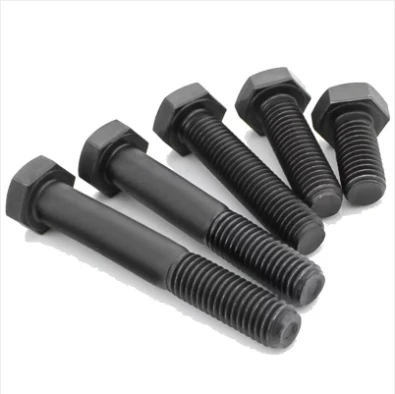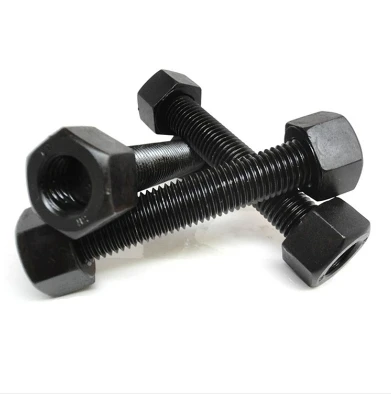bolts
ม.ค. . 09, 2025 11:47 Back to list
bolts
Bolts, those seemingly simple yet essential pieces of hardware, play a crucial role in the safety and reliability of countless products and structures. As an experienced engineer with years of expertise in materials and mechanics, I can attest to the transformative impact that selecting the right bolts can have on a project. Their applications span from the most delicate electronics to the gigantic structures that dot our skylines, each with specific needs and requirements that the humble bolt meets with precision and reliability.
Real-world experience further affirms the importance of proper bolt selection. Consider a case where an aerospace component failed due to bolt corrosion, leading to costly delays and safety concerns. An expert review revealed that substituting stainless steel bolts could have prevented corrosion, highlighting the importance of material selection. This incident exemplifies the need for precise knowledge and careful consideration in bolt applications. Building trustworthiness too lies in transparent communication about bolt specifications and capabilities. Manufacturers that provide detailed data sheets, quality certifications, and even installation guidance foster confidence among their clients. Such transparent practices not only enhance relationships but also ensure that products perform as expected under the prescribed conditions. In summary, bolts, despite their modest appearance, are indispensable to both product functionality and structural safety. They require a blend of real-world experience, technical expertise, authoritative standards, and trust-building practices to fully harness their potential. By understanding these elements, manufacturers and engineers can guarantee that their products and creations stand the test of time, illustrating that success often hinges on attention to the smallest of details.


Real-world experience further affirms the importance of proper bolt selection. Consider a case where an aerospace component failed due to bolt corrosion, leading to costly delays and safety concerns. An expert review revealed that substituting stainless steel bolts could have prevented corrosion, highlighting the importance of material selection. This incident exemplifies the need for precise knowledge and careful consideration in bolt applications. Building trustworthiness too lies in transparent communication about bolt specifications and capabilities. Manufacturers that provide detailed data sheets, quality certifications, and even installation guidance foster confidence among their clients. Such transparent practices not only enhance relationships but also ensure that products perform as expected under the prescribed conditions. In summary, bolts, despite their modest appearance, are indispensable to both product functionality and structural safety. They require a blend of real-world experience, technical expertise, authoritative standards, and trust-building practices to fully harness their potential. By understanding these elements, manufacturers and engineers can guarantee that their products and creations stand the test of time, illustrating that success often hinges on attention to the smallest of details.
Next:
Latest news
-
Premium Wire Bolts Suppliers | Durable & Reliable Fasteners
NewsAug.18,2025
-
Leading Metric Wood Screw Companies & Manufacturers
NewsAug.17,2025
-
Top Wire Bolts Suppliers - Quality & Durable Fasteners
NewsAug.15,2025
-
Trusted Wire Bolts Company | Quality Fasteners Supplier
NewsAug.14,2025
-
Reliable Wire Bolts Suppliers & Manufacturers for Global Needs
NewsAug.13,2025
-
High-Quality Bolts for Lawn Mower Handle Supplier
NewsAug.12,2025
